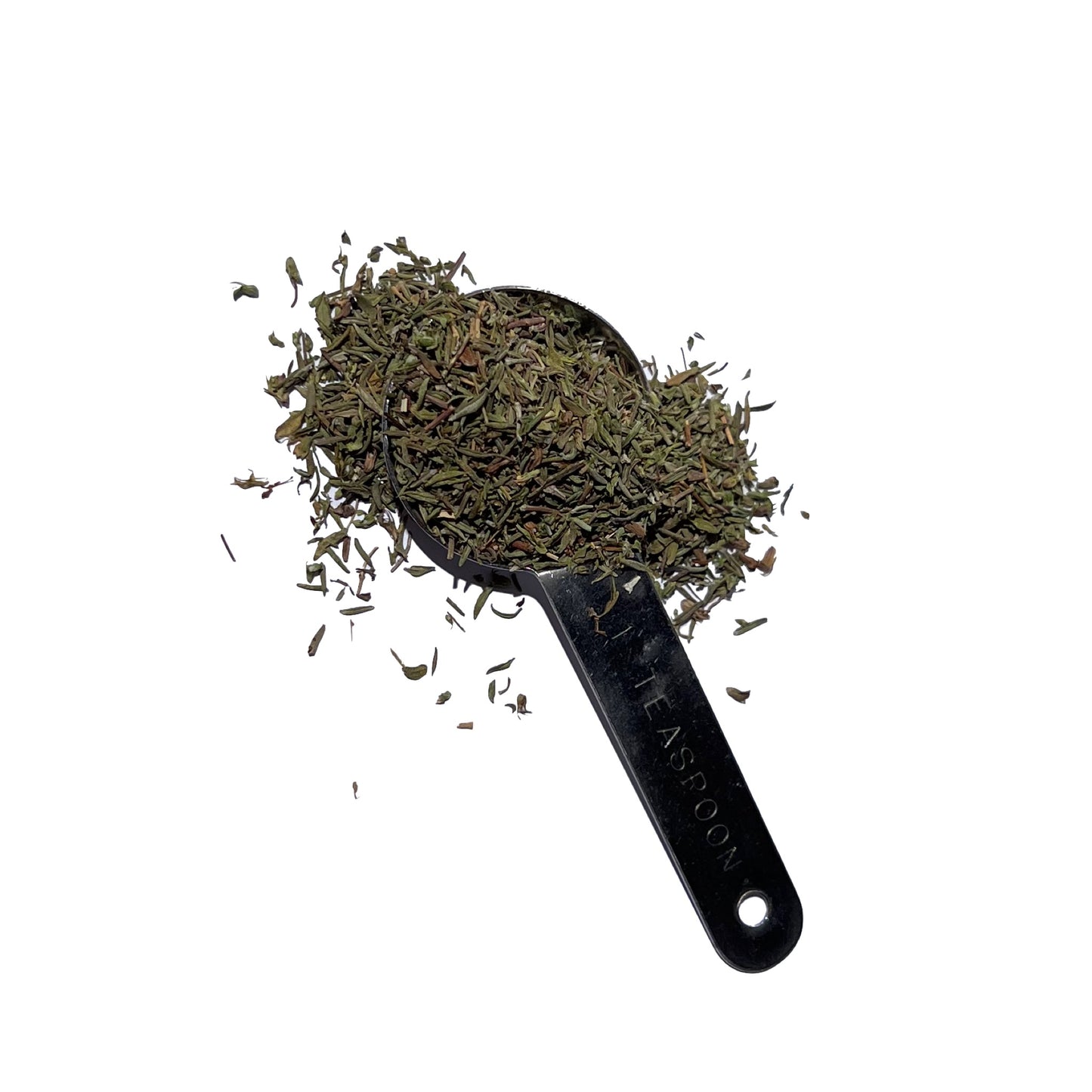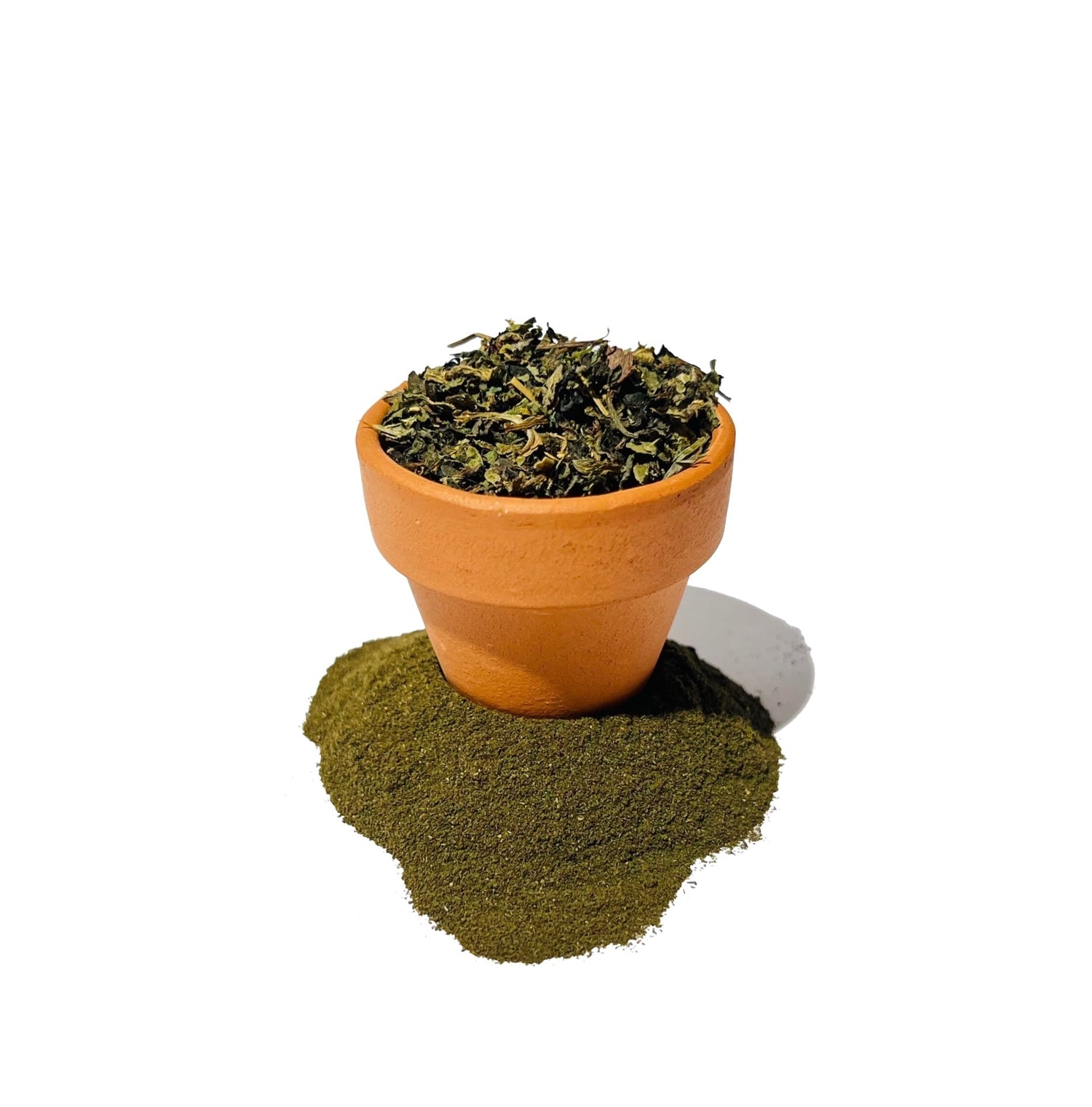Thyme Leaf C/S
Thyme Leaf C/S
Scientific Name: Thymus vulgaris
Preparation: Cut & Sifted
Place of Origin: Morocco
Garden thyme is a small, evergreen shrub native to the dry, rocky soils of the Mediterranean. Used in ancient Egypt, Greece and Rome, the herb has a rich history of symbolism — associated with both death and courage — as well as culinary and medicinal significance.
Thyme’s tiny, green leaves have a pungent aroma and a warming, spicy taste with notes of cloves and mint. Unlike many culinary herbs, dried thyme withstands long, slow cooking in stocks, soups, and stews. It is one of the three ingredients, along with parsley and bay leaf, in classic French bouquet garni and is found in the herb blend known as herbes de Provence.
The volatile oils in thyme leaves (thymol and carvacol) are both aromatic and therapeutic. Contemporary herbal practitioners recommend thyme tea as a remedy for coughs, colds and flus.
In stock and ready to ship
Couldn't load pickup availability
Shipping Information
Shipping Information
Free shipping on orders over $250
We currently ship to the contiguous U.S. only (excludes Hawaii and Alaska).
Orders are processed within 48 hours and shipped via UPS Ground (1–7 business days).
Expedited shipping isn’t available yet, but we’re working on it.
Shipping rates are calculated at checkout based on your zip code and order weight.
To view your rate, just add items to your cart and enter your address.
Product Safety
Product Safety
We recommend that you consult with a qualified healthcare practitioner before using any herbal products, particularly if you are pregnant, nursing, have any existing conditions, or are on any medications. This content is for informational purposes only and has not been evaluated by the Food and Drug Administration.
All material is intended for further processing.





